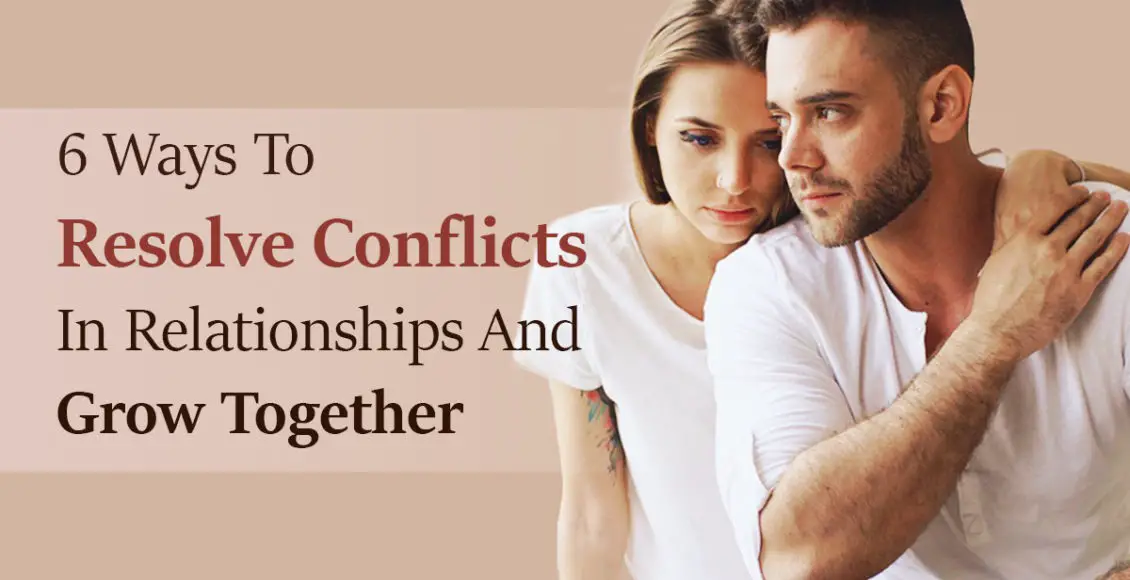“You can’t stop the waves, but you can learn to surf.” ~Jon Kabat-Zinn
An argument with your partner can make you feel threatened, vulnerable and weak, and this can make you shrink away and retreat. When your partner makes you upset and you feel like you’re under attack, you are less likely to respond constructively and more prone to resort to things like “the silent treatment” which ultimately do more harm than good. If this pattern keeps on repeating, your relationship will eventually collapse.
If someone asked you if you knew how to handle conflict, you would probably say yes, and if they asked you whether the silent treatment is an intelligent way to deal with conflict, you would most likely say no. You are better than that, but if the pain is substantial, you’ll do it anyway.
To understand how to deal with conflict in your relationship properly, check out the following 6 tips.
1. It’s not about who is right and who is wrong

The need to win arguments at all times indicates emotional immaturity. If you truly care about your significant other the last thing you want is to make them feel belittled, patronized, or manipulated – which is exactly what happens when you fight in order to validate your own ego at every opportunity. And if you two are constantly arguing, but you didn’t use to, it is a clear sign that there are deeper issues in your relationship.
Relationships flourish when both sides decide to committedly work through conflict hand in hand rather than retreat into battle positions and argue until the actual problem is forgotten and exhaustion sets in. Even if you’re certain you’re right about whatever the issue may be, is proving it worth making the most important person in your life feel like an idiot?
2. Be more accepting
If you find yourself in the middle of a conflict, try keeping in mind that the other person is entering this situation with a completely different set of experiences that yourself. You have not been in this person’s skin, and while it certainly may help if you try to understand where they’re coming from, in the end your partner is the only one who can really explain what he or she has gone through.
3. Choose your words with care
Your words start as thoughts, then transition into actions (which become habits, and character). When you repeatedly crush your partner with mean-spirited words, patronizing tones, or hideous curses, you are building and an ugly character. Chose your words wisely, and take a moment to breathe in the midst of an argument.
Besides hindering the future potential of a relationship, constantly spewing out hurtful words will make your own life less happy. Loving words of respects will build your relationship and you will hear more kind words in return too.
4. Don’t sweat the small stuff
Instead of making every little fly into an elephant, agree not to turn small issues into battles unless they are truly important. Understand that not every disagreement needs to turn into a fight. Sure, this does not mean you have to bow down to every demand when you feel strongly about, but take the necessary time to question the level of importance of the issue at hand.
5. Repair what has been broken and get back on track

After an argument, whether it is mild or a category 5 hurricane, work towards repairing your relationship as quickly as possible. Apologize sincerely if you feel that you need to take responsibility for hurting your partner. Maybe you two could not resolve the issue before you went to sleep, and you slept in separate rooms because of it. First thing when you wake up, sit down and have a talk. Do not rush out to work still angry at each other. Lingering discord will affect both your days and the relationship will have a thorn in its heart. Forgiveness gets easier every time it is practiced. The most successful couples seek to resolve conflict quickly, so they can get back to feeling united.
6. Let go of the past
Once you and your partner had an equal opportunity to share your side, mutually agree to let go of it. In the best case, your talk will end in a mutually satisfactory way. And should it not, you may choose to look at it at a later time. When making this decision, ask yourselves how important it really is to you. Should you make the decision to leave it in the past, do your best to stick to that, rather than digging it up again in future conflicts.
Conflicts can be stressful.
But if you look at them as opportunities for growth, they can help you get closer to your partner and deepen your relationship.
If you enjoyed this article, don’t hesitate to drop us a comment and share it with your friends.



